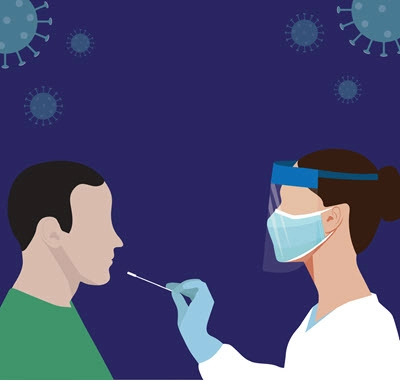Welcome New Support, Note Resumption of Some Regulatory Responsibilities
A more coordinated federal response may bring relief to the long-term care industry. The Centers for Medicare & Medicaid Services (CMS) announced a new multipronged approach that may bring relief to some in the long-term care industry. The efforts include new funding, new support for testing, and other resources intended to help stop the outbreak in nursing homes, in particular. “As caseloads continue to increase in areas around the country, it has never been more important that nursing homes have what they need to maintain a sturdy defense against the virus. These measures will help them do exactly that,” says Seema Verma, CMS administrator, in a press release. Look for This Funding Relief The U.S. Department of Health and Human Services (HHS) has earmarked $5 billion of the Provider Relief Fund authorized by the Coronavirus Aid, Relief, and Economic Security Act to certain nursing homes — those that are Medicare certified, as well as state veterans’ homes. Eligible facilities must participate in the Nursing Home COVID-19 Training — a 23-module “online, self-paced, on-demand” educational series focused on infection control and best practices, developed by CMS and the Centers for Disease Control and Prevention (CDC) — to qualify for any of these relief funds. CMS suggests that this HHS funding could be used to hire additional staff, establish and implement mentorship programs with infection control experts, increase testing capacity, and provide technology for residents who cannot interact with family members in person. Focus on New Testing Support After months of parsing out various federal and state recommendations and juggling public health best practices along with short staffing and increased costs, HHS has announced that it will be distributing rapid point-of-care diagnostic testing devices to nursing homes. With this new capability, CMS says it will require — rather than recommend — that nursing homes in states with 5 or more percent COVID-19-positive infection rates test all “nursing staff” weekly. While the CMS announcement specifies that weekly testing of nursing staff will be required, the HHS announcement mentions that the diagnostic devices can be used to test staff weekly, but defers to state and local health departments for specific testing schedules and guidance. Facilities that are “prioritized” by CMS will be the first to receive the diagnostic devices, HHS says. Verma notes that the additional $5 billion in HHS funding can be used to help facilities test visitors, if appropriate. Although the testing support is welcomed by industry advocates and leaders, there are still some holes in the national safety net being sewn together to keep nursing homes safer. In a July 17 letter to the Coronavirus Commission for Safety and Quality in Nursing Homes, American Association of Post-Acute Care Nursing (AAPACN) CEO and president Tracey Moorhead described better coordination between CMS and other federal and state agencies on testing protocols, among other guidance, as one of the top two things that would make an immense difference for nursing facilities in the short term. “Streamline and ensure coordination between CMS and state and local governments. CMS must provide resources, including specific guidance on testing and other protocols to ensure consistency among states and surveyors. Absent such guidance, and consistent application across the country, we fear continued challenges in protecting patients and skilled nursing staff,” she says. Note PEPPER Records Release The latest iteration of the Program for Evaluating Payment Patterns Electronic Report (PEPPER) was released July 29, delayed from the original April 6 release date. These reports have a new target area, looking at three- to five-day readmissions, which provides data on readmissions after the three-day gap of noncoverage, says Kris Mastrangelo, OTR/L, LNHA, MBA, president and CEO of Harmony Healthcare International in Topsfield, Massachusetts. This data is supposed to help monitor the impact of CMS’ interrupted stay policy as it relates to discharge and readmission patterns, as well as data related to RUG-IV areas that may indicate improper Medicare payments prior to the implementation of the Patient-Driven Payment Model (PDPM), she says. Beware Resumption of Claims Review “As states reopen, and given the importance of medical review activities to CMS’ program integrity efforts, CMS expects to discontinue exercising enforcement discretion beginning on August 3, 2020, regardless of the status of the public health emergency,” says a four-page “Coronavirus Disease 2019 (COVID-19) Provider Burden Relief Frequently Asked Questions (FAQs)” document posted in conjunction with the RCD announcement. The FAQ refers to “Medicare Fee-For- Service (FFS) medical review.” The Aug. 3 resumption addresses not only RCD, but also Medicare Administrative Contractor Targeted Probe and Educate (TPE), Supplemental Medical Review Contractor, and Recovery Audit Contractor activity, points out billing expert M. Aaron Little with BKD in Springfield, Missouri. The resumption applies to “both prepayment and postpayment medical reviews,” point out attorneys Howard Young, Gregory Etzel, and Kathleen Rubinstein with Morgan Lewis in online analysis. In a Frequently Asked Question set issued in March, CMS said “no additional documentation requests will be issued for the duration of the PHE for the COVID-19 pandemic.” Now, CMS says claims review is going ahead anyway. “This is in direct opposition to the position previously stated by CMS since the PHE has not yet ended,” Little stresses. “All in all, this is very concerning for providers.” Providers “that were in the midst of an audit or other medical review process should be ready to reengage in those processes and be prepared for new audit activity,” counsel attorneys Meg Pekarske, Bryan Nowicki, and Emily Park with Husch Blackwell. Specifically, “if you were in the middle of a Targeted Probe and Educate audit, receiving ADRs for one or more services, received a Comparative Billing Report for a service or item provided (or any other audit activity) prior to this pause,” you should be on notice, says Delray Beach, Florida-based Acevedo Consulting in a message to clients. “Providers should be on alert beginning August 3, 2020, for requests from government auditors regarding pre- or post-payment reviews,” Pekarske, Nowicki, and Park advise in online analysis. CMS officials also have indicated to representatives of various provider types that it would focus first on postpayment reviews, so as not to affect incoming cash flow from new claims. CMS also assured provider reps that it will stagger new audits and will focus on auditing claims from before the COVID-19 PHE time period, news reports say. And in the FAQ, CMS pledges that “if selected for review, providers should discuss with their contractor any COVID-19-related hardships they are experiencing that could affect audit response timeliness.” MACs will be able to use their discretion on this issue, though, which may not be favorable for providers.


